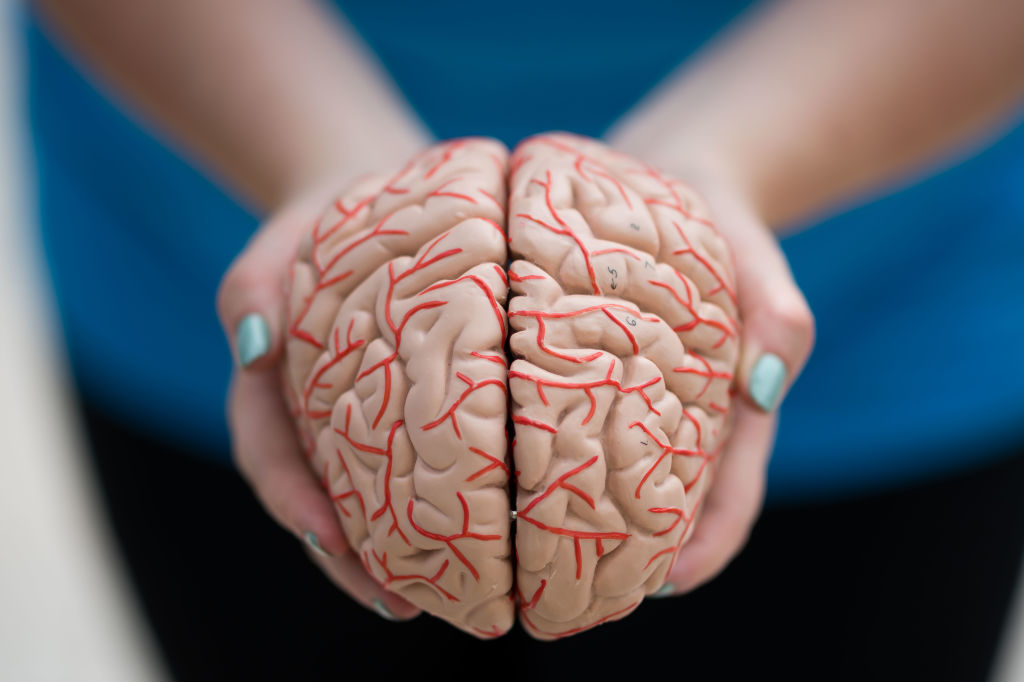
Neurodegenerative disease drug developer Arkuda Therapeutics aims to treat brain diseases by addressing a component of cells that’s key to keeping neurons healthy. The preclinical biotech is making steady progress with its lead program, and it has raised $64 million to continue that research.

With the Rise of AI, What IP Disputes in Healthcare Are Likely to Emerge?
Munck Wilson Mandala Partner Greg Howison shared his perspective on some of the legal ramifications around AI, IP, connected devices and the data they generate, in response to emailed questions.
The Series B round of funding announced Thursday was co-led by Cormorant Asset Management and Pivotal bioVenture Partners.
Neurons maintain brain health with built-in systems that digest and get rid of old or worn out parts of the cell. But in some forms of dementia, these systems don’t function properly. This dysfunction can stem from a deficiency of progranulin, a protein that is important to the lysosome, one of the cellular disposal systems. When lysosomes don’t work properly, the cellular parts that need to be broken down build up instead, leading to neurodegenerative diseases.
The lead disease target of Watertown, Massachusetts-based Arkuda is GRN-related frontotemporal dementia, an inherited form of dementia stemming from a mutation in one of the copies of the GRN gene that makes the instructions for progranulin production. The mutation leaves a patient with about half of the progranulin that would normally be produced.
Arkuda’s lead program is developing small molecules that get the healthy copy of the GRN gene to produce more progranulin. By correcting the protein deficiency, the goal is to restore the ability of lysosomes to perform their duties clearing neurons of excess material. The company said it has developed multiple compounds capable of penetrating into the brain; these molecules are currently undergoing advanced lead optimization.
If Arkuda’s approach works in GRN-frontotemporal dementia, it could find additional application in other diseases. The company notes that inherited progranulin deficiency has been linked to other neurodegenerative conditions, including Alzheimer’s and Parkinson’s disease. But Arkuda is not the only company aiming to restore progranulin production as a way of treating neurological conditions. South San Francisco-based Alector has developed an antibody drug engineered to bind to a protein that leads to the degradation of progranulin. Last summer, the biotech struck up a partnership with GlaxoSmithKline, which is sharing in the development of that drug, currently in Phase 3 testing.
Gene therapy represents another potential approach to treating frontotemporal dementia caused by progranulin deficiency. Passage Bio of Philadelphia has reached early clinical testing with a gene therapy intended to restore progranulin production. Last December, London-based AviadoBio raised $80 million in to support development of its lead program, a gene therapy intended to restore production of the protein. Despite the competition that Arkuda faces in the chase for a therapy that boosts progranulin production, the biotech’s advantage may be in the formulation. The small molecules that Arkuda is developing can be made into pills, which are easier for patients to take compared to large molecules and gene therapies that must be injected or infused.
Arkuda launched in 2019, backed by a $44 million Series A round of funding. Arkuda’s Series B round added new investors Surveyor Capital and Eli Lilly. Also participating were earlier investors Atlas Venture, Pfizer Ventures, funds managed by Tekla Capital Management, and Mission BioCapital.
“The patients we aspire to serve are in great need of therapeutic options, and this financing will enable us to accelerate our efforts to turn the promise of our emerging understanding of lysosomal biology into effective medicines with the potential to positively impact the trajectory of their disease,” Gerhard Koenig, Arkuda’s co-founder, president, and CEO said in a prepared statement.
Photo: Matthew Horwood, Getty Images














